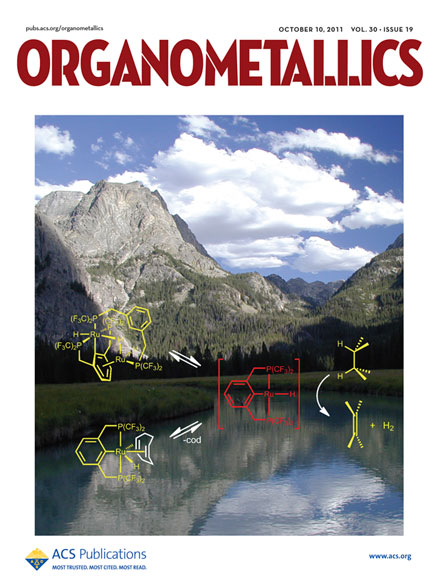Contact Us




Dr. Bruce Parkinson
Director
Department of Chemistry
Dept. 3838
1000 E. University Ave.
Laramie, WY 82071
Phone: 307-766-9891
Email: bparkin1@uwyo.edu
Roddick Group
New Directions in Hydrocarbon Conversion Catalysis
The Roddick group in the Department of Chemistry at the University of Wyoming has a continuing research program focused on organometallic chemistry and homogeneous catalysis, with a particular emphasis on hydrocarbon conversion chemistry. A synopsis of current research challenges in this area were outlined in the Department of Energy's Basic Energy Sciences (BES) Workshop on Basic Research Needs in Catalysis for Energy Applications, held August 6-8, 2007. This workshop identified research needs and opportunities for catalysis to meet the nation's energy needs, provided an assessment of where the science and technology now stand, and recommended directions for fundamental research that should be pursued to meet the goals described. Some specific research targets included (1) selective partial oxidation and functionalization of methane, (2) oxidative coupling of small hydrocarbons, (3) integrated hydrogen transfer (hydrogen donation) from methane to hydrogen-poor hydrocarbons, and (4) selective alkylation and methane homologation strategies. Hydrocarbon "construction" strategies to form targeted molecules involving multiple C-C bond formations require catalytic sites with capabilities beyond the limits of known chemistry.
One of the primary underlying issues in the efficient use of abundant hydrocarbon resources is the problem of hydrogen balance. Most desirable from the standpoint of liquid fuels and the chemical industry are medium-length hydrocarbon chains with a hydrogen:carbon atom ratio of ~2 (see below). Methane, the main component of natural gas, has a H:C ratio of 4 and is the primary source of hydrogen gas through steam reforming. In contrast, coal has a C:H ratio of ~ 1 and is either used directly as a fuel or is combined indirectly or directly with hydrogen in coal liquefaction processes to form desirable hydrocarbons. Thus, the efficient large-scale production of chemical and fuel feedstocks is closely tied to the challenge of hydrogen transfer chemistry.

During this past year, the Roddick group has published a series of papers detailing
their approach to selective catalytic hydro-carbon hydrogen transfer using a robust
fluorinated metal supporting "pincer" ligand framework. Most notable was a highlighted
paper in the journal Organometallics (Organometallics 2011, vol. 30, 5133-5140), which detailed the first example of a ruthenium-based system for catalytic
hydrocarbon dehydrogenation. 
Prior to this work the only well-defined alkane dehydrogenation catalysts were based on iridium, a considerably more expensive and less abundant metal. An exciting unique feature of these fluorinated pincer systems are their unique air and moisture stabilities, which allow hydrogen transfer reactions to be carried out without special precautions and the exclusion of air.
The primary ruthenium catalysis work was carried out by Brian Gruver, supported fully by the School of Energy Resources 2008-2010. Brian completed his Ph.D. in the Spring of 2012.
Contact Us




Dr. Bruce Parkinson
Director
Department of Chemistry
Dept. 3838
1000 E. University Ave.
Laramie, WY 82071
Phone: 307-766-9891
Email: bparkin1@uwyo.edu
